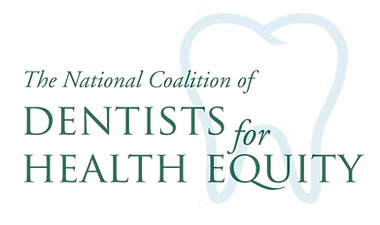See acknowledgement regarding the Coalition under Caswell Evans' name in the article from STAT: https://www.statnews.com/2022/12/19/congress-biden-administration-expand-access-dental-therapists/
Northern Maine and southern California don’t seem to have a lot in common — until you start looking for affordable, accessible dental care. In such disparate communities, and thousands in between, millions of Americans can’t access the dental care they need.
Not having access to dental care can lead to serious oral and overall health issues, not to mention more intensive care later on. Poor oral health can lead to unrelenting pain, lower lifetime earnings, bankruptcy related to the cost of care, and, tragically, even death.
Nearly 70 million Americans live in areas with a shortage of dental providers. Access is especially limited for those who receive their dental coverage through Medicaid, because only about one-third of dentists accept that insurance.
Building an adequate dental workforce is essential to improving America’s oral and overall health. While medicine has long relied on a wide range of provider types — physicians, nurse practitioners, and the like — dentistry has lagged far behind in expanding the health care team. That is beginning to change with the inclusion of dental therapists.
These licensed providers work under the supervision of dentists to provide routine care like dental exams and fillings. They are currently authorized to work in 13 states; other states are considering following suit. They treat patients in various settings, including community health centers, private practices, schools, and nursing homes.
Dental therapists have been working in the U.S. for almost 20 years. They were first employed in Alaska Native tribal clinics as a cost-effective means of adding capacity to an overstretched dental care system.
Because dental therapists do a smaller set of procedures than dentists, they can be trained in far less time and for less cost. This results in accessible education pathways for people from underserved communities to become the dental care providers their communities need. The Commission on Dental Accreditation, the same body that approves education programs for dentists, also accredits dental therapy programs, assuring patients that their providers are receiving appropriate, high-quality instruction.
The federal Advisory Committee on Training in Primary Care Medicine and Dentistry has issued the government’s most comprehensive review of dental therapy. The report concluded that dental therapy improves access to dental care and health outcomes, decreases oral health inequities, and creates a more representative workforce. It recommends that Congress and the Biden administration support the training and deployment of dental therapists through new and existing federal funding programs.
The U.S. currently has just five education programs for dental therapists — three in Minnesota, one in Alaska, and one in Washington State. More colleges and universities are interested in starting programs but are hamstrung by raising the necessary dollars. The federal government should heed the call to invest in these education programs, which would dramatically increase the number of dental therapists moving into the workforce.
The two of us are also emboldened by recent support in the U.S. Senate and House of Representatives for dental therapists in the appropriations bills for fiscal year 2023. For years, Congress has dismissed the evidence and ignored the return on investment by prohibiting funding to a grant program created to fund education programs for dental therapists and other emerging workforce models, like community dental health coordinators, advance practice dental hygienists, dental therapists, dental health aides, and other health professionals deemed appropriate. As the report accompanying the Senate bill says, “ending this prohibition will give States the flexibility to further expand access and equity in dental care, particularly in poor, underserved and rural communities.”
Implementing these recommendations would mean that more dental therapists like Arielle Cawston could get to work. Cawston grew up in a rural tribal community in eastern Washington where people saw a dentist only for emergencies, and she watched many of her peers have teeth extracted for preventable issues. Wanting something better for the next generation, she became a dental therapist and returned to practice in her hometown, where she has helped cut down long wait times for local residents to get dental care and also provides oral health education in the community. She’s working with the local Head Start program on a regular story hour so kids can start getting comfortable with dental providers early on.
President Biden called for increasing the number of dental therapists in his campaign platform and implementing the advisory committee’s recommendations is the best course to achieve that goal. We urge federal leaders to act on the overwhelming evidence that dental therapists will improve the oral health of millions of Americans at low cost and high quality and support the education of dental therapists in fiscal year 2023 appropriations and by adding them to existing dental workforce programs.
Louis W. Sullivan is a physician, president emeritus of the Morehouse School of Medicine in Atlanta, and served as the U.S. Secretary of Health and Human Services from 1989 to 1993. Caswell A. Evans is a dentist, emeritus professor at the University of Illinois at Chicago College of Dentistry, and a board member of the National Coalition of Dentists for Health Equity.

Comentarios